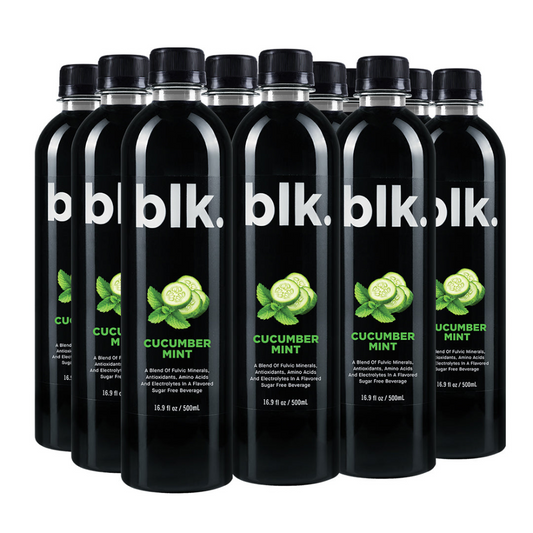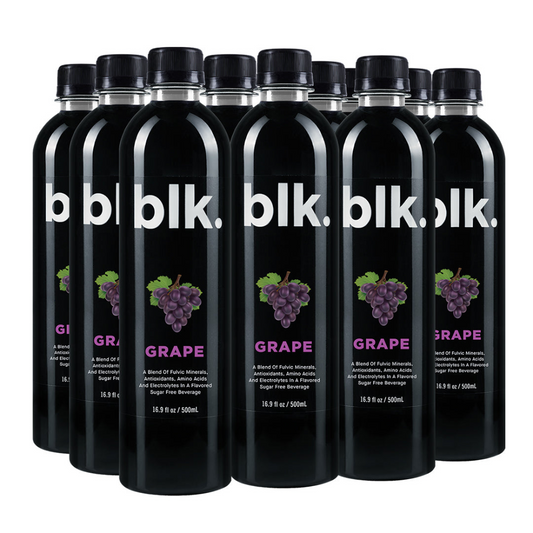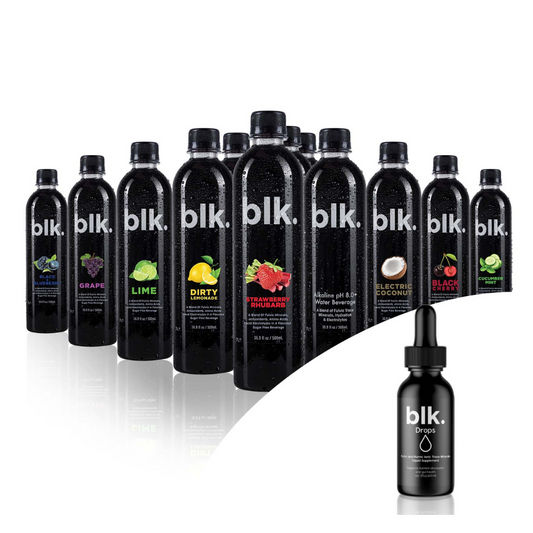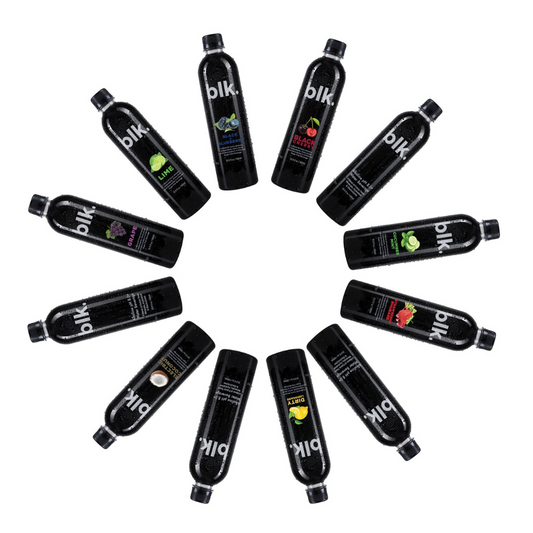
Maximizing Health: The Nutritional Advantages of Whey Protein Isolate
This Article Seeks To:
- Discuss what whey protein is and the different products that may be extracted from it
- Compare whey protein to other sources of protein
- Highlight how vegans and vegetarians may incorporate whey protein isolate in their diet
- Explain why whey protein may be essential to losing fat and gaining of muscles
- Analyze the nutritional benefits of whey protein isolate to our health
Nutritional health is becoming something people want to invest in. With lifestyle illnesses on the rise, people seek ways to lead healthy lives. Regarding nutritional health, studies indicate that excessive consumption of refined carbohydrates is associated with numerous illnesses that can be problematic. Further studies indicate that proteins, compared to refined carbohydrates, provide a healthier alternative enabling individuals to control their health better.
Ripped.com aims to support health and fitness goals by providing only high-quality supplements. If you prefer to buy whey protein isolate but are unsure about its nutritional advantages, we recommend this blog to you. Here we discuss how whey protein isolates maximize your health by building muscles, weight control, and boosting your systems. We further compare whey protein isolate with other forms of proteins to give you a clearer insight into health supplements.
What is Whey Protein Isolate?
Whey proteins come from the watery component of milk that separates from the curds during the cheese-making process. Whey protein isolate is whey protein that has been processed to eliminate the majority of the fat, lactose, and other non-protein constituents. It is a protein-rich resource that the body can readily absorb and digest. Whey protein isolate is a popular choice for athletes and anyone trying to improve their protein consumption because it contains more than 90% protein by weight. It's frequently found in protein supplements, powders, and bars.
Whey Isolate vs. Whey Concentrate
Whey concentrate is a form of whey protein produced by separating whey from milk and eliminating non-protein substances. Whey concentrate is generally 70-80% protein by composition, with the remainder 20-30% made up of fat, lactose, and other minerals.
The fundamental distinction between whey concentrate and whey isolate is the extent of processing. Whey isolate is further processed to eliminate practically all non-protein components, yielding a protein powder containing more than 90% protein by composition. Whey isolate is, therefore, a preferable alternative for people who are lactose intolerant or have difficulty digesting whey protein. On the other hand, whey concentrate is a less expensive choice that nevertheless delivers a high-quality protein supply. Protein supplements, powders, and bars extensively utilize whey isolate and concentrate on aiding muscle building and recovery.
What Makes Whey Isolate Unique
Whey isolate is unique because it is extensively processed to eliminate practically all non-protein elements, such as cholesterol, lactose, and other micronutrients. Consequently, the protein powder contains a higher protein concentration by weight, rendering the most concentrated and pure sources of protein accessible.
The Role of Whey Isolate in Building Muscle
Protein Synthesis and Muscle Growth
Proteins are generally known to be the building blocks of muscles. They do this by stimulating the synthesis of new muscle tissue through muscle protein synthesis. This process occurs when the amino acids from the protein you eat create new muscle tissue. Consuming adequate amounts of protein is, therefore, essential for muscle growth.
Whey Isolate and Muscle Recovery
Whenever you exercise, you cause slight damage to your muscles, which must be healed and replaced. This process necessitates using amino acids, protein's building blocks. After you eat protein, they are broken down by your body into amino acids, which are then utilized to repair and rebuild your muscles. For most people, eating regular food may not provide adequate protein nutrients to use in this process. For that reason, whey isolate becomes an additional source or alternative for adequate proteins needed for muscle recovery.
Recommended Daily Intake for Muscle Growth
Different individuals have varying requirements for proteins based on the types of activities that they engage in. Since athletes engage in exercises that cause microscopic muscle damage, they need more proteins for muscle regeneration and growth. A person who lifts weights frequently or is training for a running or cycling race should consume 0.73–1.10 g/lb. per day to enhance muscle growth in conjunction with physical exercise. Ordinary people, on the other hand, need proteins for muscle growth and the smooth running of different processes in the body; however, their requirements are pretty low. Studies recommend a 0.54–0.82 g/lb—protein target for a passive person.
Weight Management with Whey Protein Isolate
Consuming whey protein is an excellent method to improve your protein consumption, which should have significant effects. Weight reduction of roughly 8 pounds (3.5 kg) while increasing lean muscle mass has been reported in studies where other sources of calories are replaced with whey protein and supported by weight training.
Whey Isolate and Calorie Control
Because of its increased protein composition and reduced fat and carbohydrate levels, whey isolate can help with calorie control. Whey protein has a strong thermic impact, which means it takes more energy to digest and can heighten feelings of fullness and satiety. You may improve your protein intake by ingesting whey isolate without consuming too many calories from other macronutrients. This is especially beneficial for people attempting to sustain a calorie deficit for weight reduction while promoting muscle growth and repair.
Whey Isolate and Craving Suppression
Because of its high protein content, whey isolate can suppress appetite. Protein takes longer to digest than carbs or lipids, which might improve feelings of fullness and satiety.
Whey Isolate and Fat Loss
Whey isolate allows you to improve your protein consumption without ingesting extra calories from other macronutrients, which might help you minimize your overall calorie intake. This is especially useful for people who want to maintain a healthy weight by managing their appetite and preventing overeating.
Recommended Daily Intake for Ideal Weight
If you're a healthy weight and active person looking to reduce fat, aim for 0.73-1.10 g/lb., skewing toward the upper end as you get leaner or raising overall caloric deficit (by consuming less or exercising more). In lean lifters, intakes are as high as 2.5 g/lb., which may increase fat removal while minimizing muscle loss.
Whey Isolate and Lean Muscle
Whey isolate is a high-quality protein source that's especially good for boosting lean muscle development and maintenance. Being a complete protein, it provides all amino acids required for muscle development and regeneration.
The high leucine concentration of whey isolate is one of the key reasons for lean muscle development. Leucine is an essential amino acid that promotes muscle protein synthesis, the process by which new muscle tissue is formed. Whey isolate contains a high leucine concentration, making it an effective stimulant of muscle protein production.
Whey isolate is easily digested and absorbed by our bodies, making it an excellent protein supply for post-workout restoration. After an exercise, ingesting whey isolate can help you quickly deliver the amino acids required for muscle regeneration and repair, supporting extra reps of exercises for lean muscle growth.
Whey isolate is also low in fat and carbs, making it ideal for people aiming to maintain or reduce body fat while boosting lean muscle building. Whey isolate can aid in developing a leaner, more muscular body by supplying high-quality protein without the extra calories from fat and carbs.
Whey isolate is a valuable nutrient for promoting lean muscle development and maintenance, particularly when eaten with a balanced diet and exercise routine.
Comparison of Whey Isolate and Other Protein Sources
Compared to other protein sources, such as casein and soy, whey isolate is lower in fat and carbs and more readily absorbed. People with lactose intolerance or dairy allergy should avoid it. Other protein sources, such as peas, brown rice, and hemp, can give similar advantages to whey isolate and may be a better alternative for people who follow a plant-based diet or have dietary limitations.
Whey Isolate vs. Plant-Based Proteins
Nutritional Comparison
Whey protein is a complete protein source, which includes all nine necessary amino acids our bodies cannot create on their own. It also contains many branched-chain amino acids (BCAAs), essential for muscle repair and development. It has a better biological value and a more significant amount of critical amino acids per serving than most plant-based proteins.
Plant-based protein sources such as peas, brown rice, and hemp are also proteins that can give similar advantages to whey protein. They may, however, contain a reduced percentage of some essential amino acids and may necessitate using multiple protein sources to maintain a complete amino acid profile.
Benefits of Plant-Based Proteins
Plant-based proteins are generally lower in fat and carbohydrates and higher in fiber compared to whey protein, making them a good option for those looking for a lower-calorie, lower-carbohydrate protein source.
Additionally, plant-based proteins may be a better option for those with lactose intolerance or dairy allergies. Both whey and plant-based proteins can provide significant nutritional benefits, and their choice depends on individual dietary needs and preferences.
How to Incorporate Whey Isolate Into a Plant-Based Diet
Whey isolate is a dairy-derived protein; hence it is incompatible with a strictly plant-based lifestyle. For vegans and vegetarians, however, who are explicitly looking for whey isolate, several plant-based protein blends incorporate various plant-based protein sources to generate a protein powder with a similar amino acid profile to whey isolate. It is also crucial to highlight that folks pursuing a plant-based diet must consume enough protein to maintain their athletic objectives.
Whey Isolate as a Meal Replacement
Whey isolate can be used as a meal replacement, especially for people trying to cut calories. Being a high-protein, low-fat, and low-carbohydrate food, it can help improve satisfaction and satiety, making it a pleasant meal replacement alternative.
Whey isolate is easily digested, allowing for rapid uptake of the amino acids required for muscle development and repair. It is crucial to remember however, that whey isolate might not provide all of the vitamins, minerals, and other nutrients required for a healthy diet, so it is strongly advised to seek advice from a specialist doctor or registered nutritionist before replacing meals with whey isolate or any other protein supplement.
Conclusion
Whey protein isolate is a very nutritious and handy supplement that can help people achieve various health objectives. Because of its high protein content, low fat and carbohydrate content, and simple digestion, it is a favorite choice among fitness enthusiasts, athletes, and anyone trying to enhance their general health. By including whey protein isolate in your diet, you may get numerous nutritional benefits while supporting your fitness and health goals.
Why not give it a shot? Whey protein isolate is widely available in powder, bar, and ready-to-drink smoothie formats. With so many flavors and choices available, you're sure to find something that matches your taste and lifestyle.
Frequently Asked Questions
-
Can people consume whey protein isolate while following a vegetarian or vegan diet?
-
Is whey protein isolate gluten-free?
-
Can I consume whey protein isolate if I'm pregnant or breastfeeding?
-
Does whey protein isolate contain any artificial sweeteners or flavors?
-
Does whey protein isolate have any side effects?




